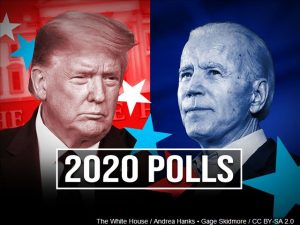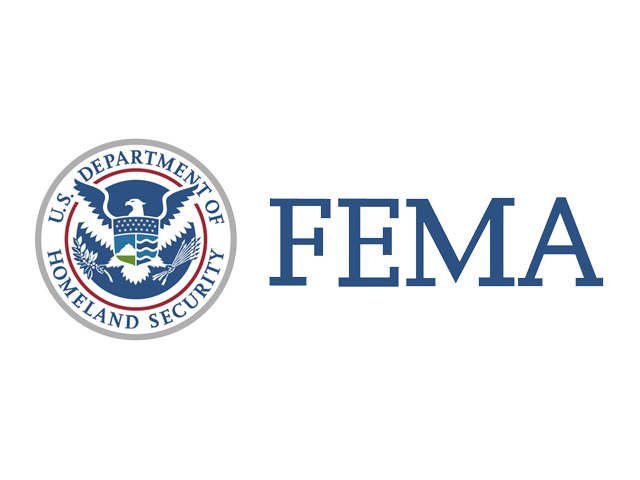 Data from The Reconnect Research/ Roanoke College Poll: Former Vice President Joe Biden leads President Donald Trump by 15 percentage points (53%-38%) in Virginia according to The Reconnect Research/Roanoke College Poll.[1] Only 5% are undecided, and 4% said they will vote for Jo Jorgensen, the Libertarian candidate. Fully 95% of those who support either candidate are very certain of their vote intention. Biden’s lead was 12 points in the May Roanoke College Poll and 14 points in August. U.S. Senator Mark Warner leads Daniel Gade, his Republican opponent (55%-38%). The Reconnect Research/Roanoke College Poll interviewed 602 likely Virginia voters[2] between Sept. 30 and Oct. 12.
Data from The Reconnect Research/ Roanoke College Poll: Former Vice President Joe Biden leads President Donald Trump by 15 percentage points (53%-38%) in Virginia according to The Reconnect Research/Roanoke College Poll.[1] Only 5% are undecided, and 4% said they will vote for Jo Jorgensen, the Libertarian candidate. Fully 95% of those who support either candidate are very certain of their vote intention. Biden’s lead was 12 points in the May Roanoke College Poll and 14 points in August. U.S. Senator Mark Warner leads Daniel Gade, his Republican opponent (55%-38%). The Reconnect Research/Roanoke College Poll interviewed 602 likely Virginia voters[2] between Sept. 30 and Oct. 12.
More than 90% of Democrats said they would vote for Biden, while just under 90% of Republicans said they would vote for Trump. Only 4% of Democrats said they would cross over to vote for Trump while 6% of Republicans said they plan to vote for Biden.
Trump, Biden, and the issues
Trump’s favorable/unfavorable rating is 41%/56% while Biden is at 52%/44%. Trump’s numbers are slightly improved from August, while Biden’s are marginally worse. One-third of likely voters think that the candidates represent their issues and policy preferences very well or somewhat well (32% for Trump and 33% for Biden), but almost half (48%) say Trump does not represent their interests very well or not at all, while 34% say that about Biden.
Typical of most elections, a plurality of likely voters (23%) see the economy as the most important issue. However, significant percentages view the COVID virus (17%), race relations (14%), Supreme Court appointments (12%), and civil unrest (10%) as most important. Regarding the Supreme Court appointment, the majority of respondents (56%) think the appointment should be made by the winner of the election, but 41% think it should be made by the end of the year.
Nearly three-fourths (71%) of respondents think the country is on the wrong track, while only a quarter (24%) think it is headed in the right direction.
Voter confidence in the election
Barely half (51%) of likely voters are very confident or somewhat confident that the votes across the country will be accurately counted in the election, while almost as many (46%) are not too confident or not all confident. Similarly, respondents are divided with 49% saying they are not too confident or not at all confident that the nation will accept the official outcome and winners of the election and 47% reporting that they are somewhat or very confident the results will be accepted.
Analysis
“Biden maintains his lead over Trump in a race that has been extremely eventful but appears to be impervious to events,” said Dr. Harry Wilson, director of the Roanoke College Poll. “The overall numbers have changed very little over the course of many months, and time is quickly running out for the Trump campaign. It is not a surprise that the underfunded Daniel Gade trails the well-known incumbent Mark Warner.”
“Perhaps of most concern for everyone here is the overall lack of confidence in the nation’s ability to conduct a fair and accurate election and the potential unwillingness of Americans to accept the outcome as legitimate.”
Methodology
Interviewing for The Reconnect Research/Roanoke College Poll was conducted between Sept. 30 and Oct. 12, 2020. A total of 602 likely voters in Virginia who provided a substantive answer to the presidential vote question were included in this analysis. Telephone interviews were conducted in English. Survox, by Enghouse Interactive, conducted the Interactive Voice Response (IVR) data collection. Reconnect Research provided the Redirected Inbound Call Sampling (RICS) sample for this survey.
The sample of likely voters consisted of adults aged 18 years or older, who were placing a telephone call. The sampling frame was a set of phone calls that were placed any time during the fielding period in which the call did not reach its intended party and was redirected by the telephone service company handling the call to Reconnect Research. When someone dialed a nonworking number, rather than playing an “error” message and ending the call, the caller was redirected to the survey recruitment and data collection system.
The Institute for Policy and Opinion Research (IPOR) developed the questionnaire and analyzed the data. To reduce the likelihood of nonignorable primacy effects in the final data, some questions had their response options spoken in a reverse order at random half of the time.
RICS produces a nonprobability sample, which research has suggested does quite well in terms of representing the U.S. national population. RICS unweighted final samples often have a considerably larger portion of low-educational attainment and minority respondents than the unweighted final samples for outbound telephone surveys. On other demographic characteristics, RICS unweighted final samples match population parameters, including geographic location, fairly well.
The data were statistically weighted for region, sex, education, age, race, and political party affiliation based on the 2016 exit poll in Virginia. The design effect (deff)associated with the weighting was 1.86.
Nonprobability samples do not allow the use of a traditional margin of sampling error. If this was a probability sample, which it isnot, the estimate of sampling error would be approximately ±5.4%, including the design effect. However, there is no margin of error associated with this survey.
A copy of the questionnaire, topline, and select crosstabs may be foundhere.
More information about the Poll may be obtained by contacting Scott Richards at Reconnect Research [email protected] or (310) 613-8686 or Dr. Harry Wilson at [email protected] or (540) 375-2415 or the Roanoke College Public Relations Office at (540) 375-2282.
This poll is funded by Reconnect Research and Roanoke College as a public service.
[1] These figures include those who already voted. Including the responses of those who said they were leaning toward voting for a particular candidate, the results are Biden, 54%, Trump 39%, Jorgensen 4%, Undecided 4%.
[2] Respondents were screened to include registered voters who said they were very likely to vote.



